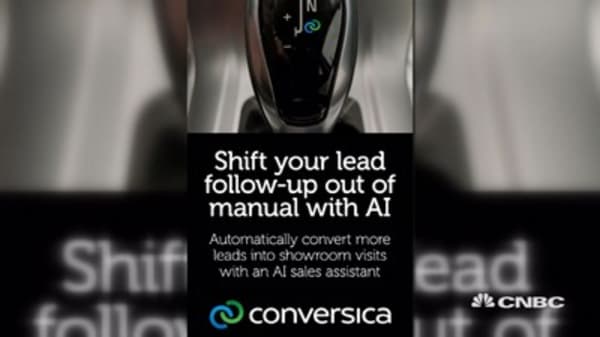"You sound cute, got a picture?"
"Nicole, your [sic] beautiful, are you single?"
"I love you, Jen."
Those may sound like messages from a dating app, but they're actually real emails people have sent to customer service representatives at places like car dealerships, insurance companies and education firms.
The problem: Those customer service reps aren't human. They're algorithm-powered software programs created by Conversica, a company that specializes in conversational artificial intelligence.
The conversation around machines moving into the American workforce usually focuses on robots taking jobs hard skills like automated manufacturing and fast food cashiers. But a new breed of artificial intelligence is emerging that focuses more on soft skills for jobs like sales and marketing. The chatbots from companies like Conversica allow sales teams to ignore dead-end leads and focus their human power on actual sales.
Advances in natural language processing and buzzword terms like "machine learning" allow increasingly sophisticated communication between humans using artificial intelligence programs.







